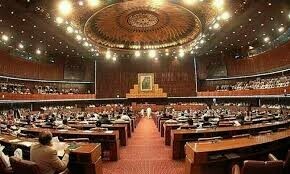UNITED NATIONS: The new selection process for the next UN secretary-general is “quite historic and potentially game-changing”, the president of the UN General Assembly, Mogens Lykketoft, told correspondents last week.
This year, the focus of the international community is to get a woman appointed. Yet the process of selection is essentially controlled by the five permanent members of the UN Security Council — China, Russia, Britain, France and the United States — which wield veto power.
When in October 2006 the five permanent members of the UN Security Council were meeting in secret to select the new secretary-general of the UN to succeed Kofi Annan, John Bolton, the US ambassador in the Bush administration, expressed relief after the US-favoured Ban Ki-moon won the contest.
According to officials then in the loop, Bolton had vetoed the candidacy of Indian candidate Sashi Tharoor, a UN under-secretary-general of public information. Tharoor, diplomats at that time said, was the favourite, but the US favoured the relatively unknown Ban Ki-moon, then the foreign minister of the Republic of Korea. Bolton said privately that the US could not have a UN secretary-general from a country that had has always opposed the US on the world stage.
The new process means that this time candidates will have two hours each to engage with the General Assembly in informal interactions beginning April 12. While the informal consultations are new, Lykketoft said the 193-member assembly would still elect the secretary-general “after a proposal brought forward by the (15-member UN) Security Council”.
All the member states will for the first time be included “totally” in the selection, the president said on Dec. 15, 2015, as he opened the process of selecting the next UN chief by sending a joint letter with the president of the Security Council, Samantha Power of the US.
The joint letter encourages member states “to consider presenting women, as well as men, as candidate”. A UN General Assembly resolution adopted in September 2015 called for the selection of the secretary-general to “be guided by the principles of transparency and inclusiveness, building on best practices and the participation of all member states”.
At the recent press conference, Lykketoft said there are groups advocating for the next secretary-general to be the first woman to lead the global organisation, and the first Eastern European.
However, he said, there are no regulations covering either of these considerations. While in theory candidates could be from one of the four other UN regional groups, all six candidates to date are from Eastern Europe, and three of them are women, including Irina Bokova, the veteran Bulgarian diplomat who is the current head of Unesco.
Lykketoft said another two candidates are expected in coming weeks, meaning that it is likely that eight candidates will address the General Assembly in mid-April. Significantly, this will happen before the Security Council makes its considerations, which is why, Lykketoft argues, the consultations could be potentially game changing. To date, the six official candidates, including Bokova, are: former Croatian foreign minister Vesna Pusic, former Slovenian president Danilo Turk, former Macedonian foreign minister and former UN General Assembly president Srgjan Kerim, Montenegro’s deputy prime minister and foreign minister Igor Luksic, as well as former Moldovan foreign minister Natalia Gherman.
Other potential candidates listed by media reports include former Portuguese prime minister and former UN High Commissioner for Refugees Antonio Guterres, Serbian former foreign minister Vuk Jeremic, and New Zealand’s former prime minister Helen Clark, who is currently the head of the United Nations Development Programme (UNDP).
Previous UN secretaries-general have come from Norway, Sweden, Myanmar, Austria, Peru, Egypt, Ghana and South Korea. Nationals of the five permanent members of the UN Security Council are not eligible to run for the position.
The result will not be made public until the fall of 2016, but politicking is already under way. As decision-time draws closer, the parameters of the race are becoming clearer. The next secretary-general will likely be Eastern European, the only region never to have had its turn at the top job under the UN’s convention of regional “rotation”.
Yet the body designed to safeguard the collective hopes of humanity has so far only ever been headed by men. To have a woman at the helm now would carry very concrete implications.
Published in Dawn, March 7th, 2016











































